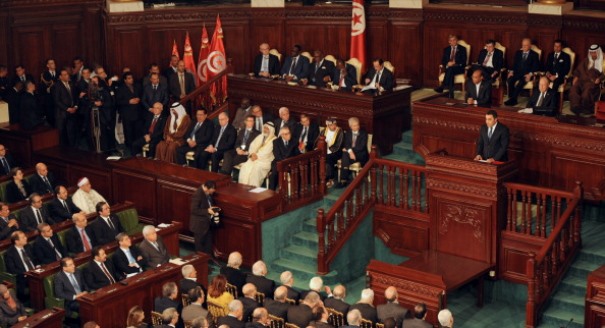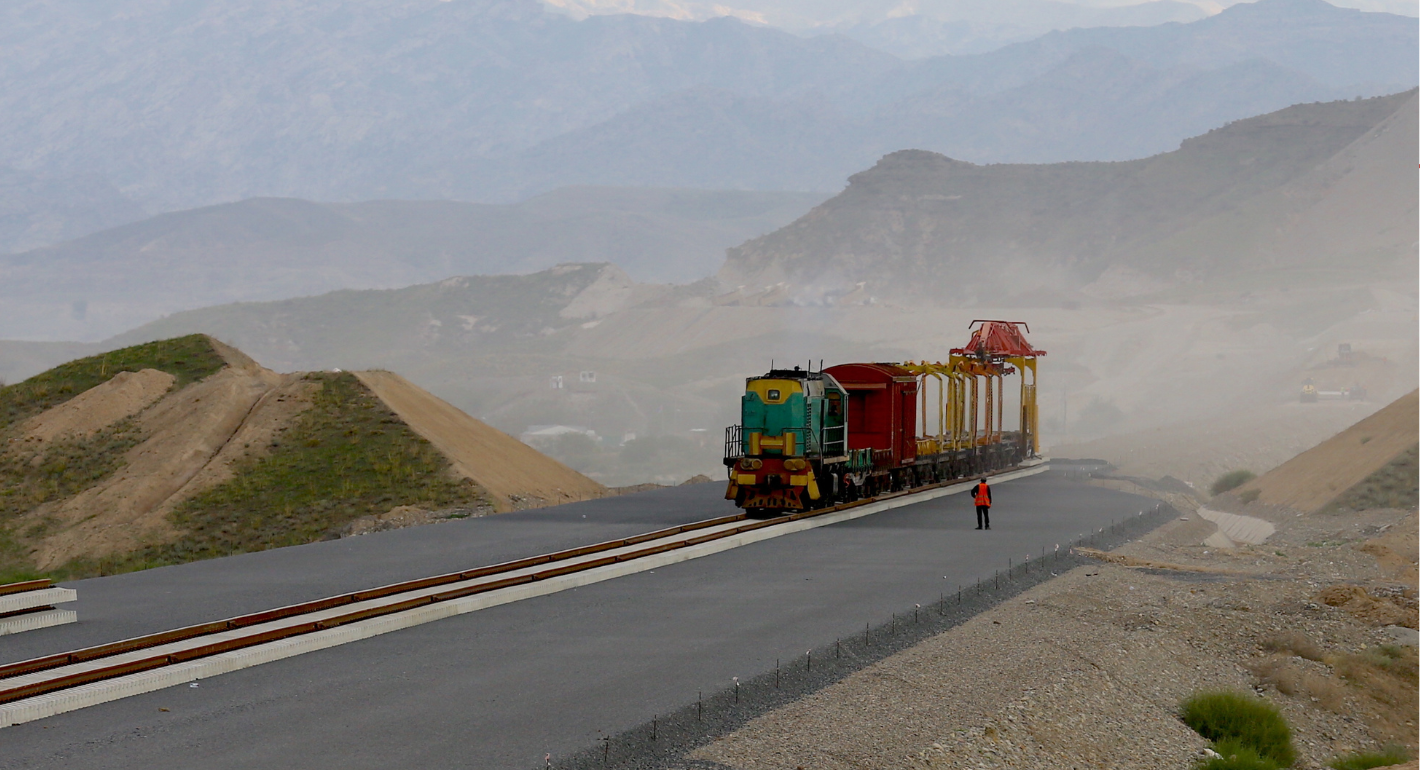There is widespread agreement that Tunisia’s economic problems are now the priority concern. Unemployment and debt are at dangerously high levels. The social drivers of the 2010–2011 revolution have not been addressed. Yet while economic support is indeed urgent, the international community must keep its focus on the country’s unfinished political transition.
Although Nidaa Tounes’s old guard from the regime of ousted president Zine El Abidine Bin Ali insists on its commitment to democracy, these party members are associated with a narrow economic elite. In a week of interviews in Tunis, I heard time and again about resurgent dynamics of rentierism, state capture, and crony capitalism.
Tunisia may not be on the verge of a return to absolute authoritarianism, but the new government’s discourse often seems regressively patrimonial. Tunisians complain that after 2011, outsiders focused almost exclusively on the incorporation of the Islamist Ennahda party into democratic politics and failed to grasp the depth of the country’s structural governance pathologies.
A key question is whether the spirit of compromise and consensus that helped the drawing up of a democratic constitution in 2011–2014 outlives the first phase of transition. Parliamentary arithmetic obliged Nidaa Tounes to offer Ennahda a minor role in the new government. But the coalition will be extremely difficult to hold together. Divergences on policy and identity questions are now expressed more stridently than in the early days of transition.
Tunisia’s successful move away from authoritarianism owed much to the bridge-building role played by the main trade union, the Tunisian General Labor Union (UGTT). The flip side of this constructive political role is that the unions now have significant power to block economic reforms.
The perception that #Tunisia is an island of stability is only partly accurate.
In addition, the perception that Tunisia is a tranquil island of stability in a sea of violent North African and Middle Eastern geopolitics is only partly accurate. The Libyan conflict increasingly encroaches upon Tunisia, with some fearing that Islamic State fighters in Libya could spill across the border. More Islamic State militants come from Tunisia than from any other country. The new government says that fighting terrorism is its top priority. Its security narrative is stronger than its democracy narrative.
Several areas of democratic consolidation remain outstanding. As the constitution is ambiguous on many points, fierce battles will ensue over the way it is implemented. Civil society liberals complain that the constitution does not fully guarantee the preeminence of individual rights. The government has recently jailed a small number of bloggers and activists. The constitution and new antiterrorism laws offer the military greater impunity.
These trends will require EU policy also to move into a new phase. In 2011, the European Commission doubled its aid to Tunisia from €80 million ($90 million) to €160 million. The country has received nearly €200 million under one of the EU’s first round of state-building contracts. Some member states are currently considering additional debt relief.
Much European support since 2011 has rightly come with very flexible conditionality—as the aim was to reward Tunisia quickly for its progress on political reform. Yet the EU and European donors now need to gain more leverage over Tunisia’s deep-rooted governance problems.
The EU and European governments have funded many job creation initiatives. All European donors in Tunis told me their priority is to increase support for job creation in remote regions—and that they see this support as a means of pulling people away from possible involvement in radical groups. However, alongside such initiatives, more focus is needed on the structural impediments to growth. EU investment to Tunisia fell by 50 per cent in 2014 as such reforms stalled.
European governments have done much to help build democracy in Tunisia. The EU is now advising the government on different models of constitutional courts. Tunisia is one of the pilot countries for the EU’s new democracy strategy. France is about to launch a new democracy program for the country, while Italy has given €1 million ($1.1 million) to support Tunisian democracy through the UN Development Program.
All six German party foundations are active in Tunisia. The UK’s Westminster Foundation for Democracy is launching a new initiative with the Tunisian parliament. Yet amounts for democracy assistance in Tunisia remain relatively limited and could usefully be increased.
The EU needs more leverage over #Tunisia's deep-rooted governance problems.
Formal negotiations on the EU-Tunisia Deep and Comprehensive Free Trade Agreement have still not been opened, and doubts have grown in Tunisia over whether the deal is a good idea. The EU’s stalling on offering freer movement has reduced the incentive for Tunisia to advance with the accord. These core offers need to be unblocked as soon as possible, or EU leverage will suffer.
European governments will be tempted to move toward a more security-driven approach in Tunisia. The EU’s counterterrorism coordinator visited the country on February 25. Several EU member states are providing equipment for Tunisian border security, and some are tentatively extending domestically counterradicalization programs to Tunisian regions.
However, while European donors have tried to enhance democratic oversight of the country’s security forces, little progress has been made with Tunisian authorities on this imperative. As security forces are becoming more repressive, the need for security sector reform is pressing.
The EU and European governments have offered Tunisia much support since the revolution. In this new phase, they will need to remember the lesson from many other transitions: the international community has a tendency to shift its attention away from democratizing states prematurely, at a time when trends can still deteriorate dramatically.











